Words: Russel Jones
Images: Cameron Mackenzie
“Hold on,” my befuddled mind is trying to process Andrew’s story, “you returned to Wellington after racing here, you start your own business at 21 working on Italian cars, after that you move into the restaurant business, then coffee roasting, and now run an espresso machine company. What with the bikes, the cars, the food and the coffee, you must have Italian DNA?”
“Yes,” smiles Andrew, “I have an Italian father!”
We are in Liscate, an eastern suburb of Milan, home of the Rocket Espresso factory, welcomed in by Kiwi couple Andrew and Nicky Meo, sipping espresso made by Andrew while guiding us around their facility. “Funnily enough, we are actually a New Zealand company, registered in New Zealand, this here is the Italian branch.” I spot a collection of metal plates ready for assembly, each are engraved ‘With a Rocket machine in your kitchen you will be faster #fact’, hinting towards the connection Rocket Espresso have with the cycling community. “It’s a bit of fun really,” Andrew explains, “we took over the business in 2007 and in 2009 we released a machine to celebrate 100 years of the Giro d’Italia. We gave one to Rapha to offer as a prize and at that stage Cavendish and Wiggins were both at Sky.
“They both then ordered machines and it kind of snowballed from that point. Now we have about 80-odd ProTour riders who use our machines.” Indeed, it seems hard to find a pro cyclist Instagram account without a Rocket reference, and any pro worth their salt will not only have one of their machines tucked away as part of their armoury, they are also happy to present them as ‘thank you’ gifts to their loyal teammates.
“Greg Van Avermaet ordered one for all his team after he won the Olympic gold, Bardet for his after the Tour, Matthews, Dumoulin also. So what we do is a special limited edition for them, for example the one we did for Matthews has all the names of his teammates written on it, Dumoulin’s more of a spiral, like the Giro trophy.” “A few of them call in to collect too,” says Nicky, “the FDJ boys were here training for the Giro di Lombardia last year and they all turned up part way through their training!” “We are an official sponsor of BORA-Hansgrohe and Bahrain-Merida,” continues Andrew, “so when BORA did a press conference for the Tour they asked for a machine. We couldn’t just send up one machine, we did three, a yellow, a green and polka dot version. It’s a two-sided deal that Rocket Espresso offer; trade in your signed pro jersey (add a bit of social media from time to time) and you get discount off one of their machines. As a result, Andrew has a fine collection of jerseys, opening the cupboard next to his desk to show us a countless pile, all folded neatly. Taking one from the top, Robert Gesink’s, still adorned with its Tour de France numbers: “Some look like they’ve literally just been taken off their back,” laughs Nicky. “I keep saying we should be doing something with them all, I just don’t know what.”
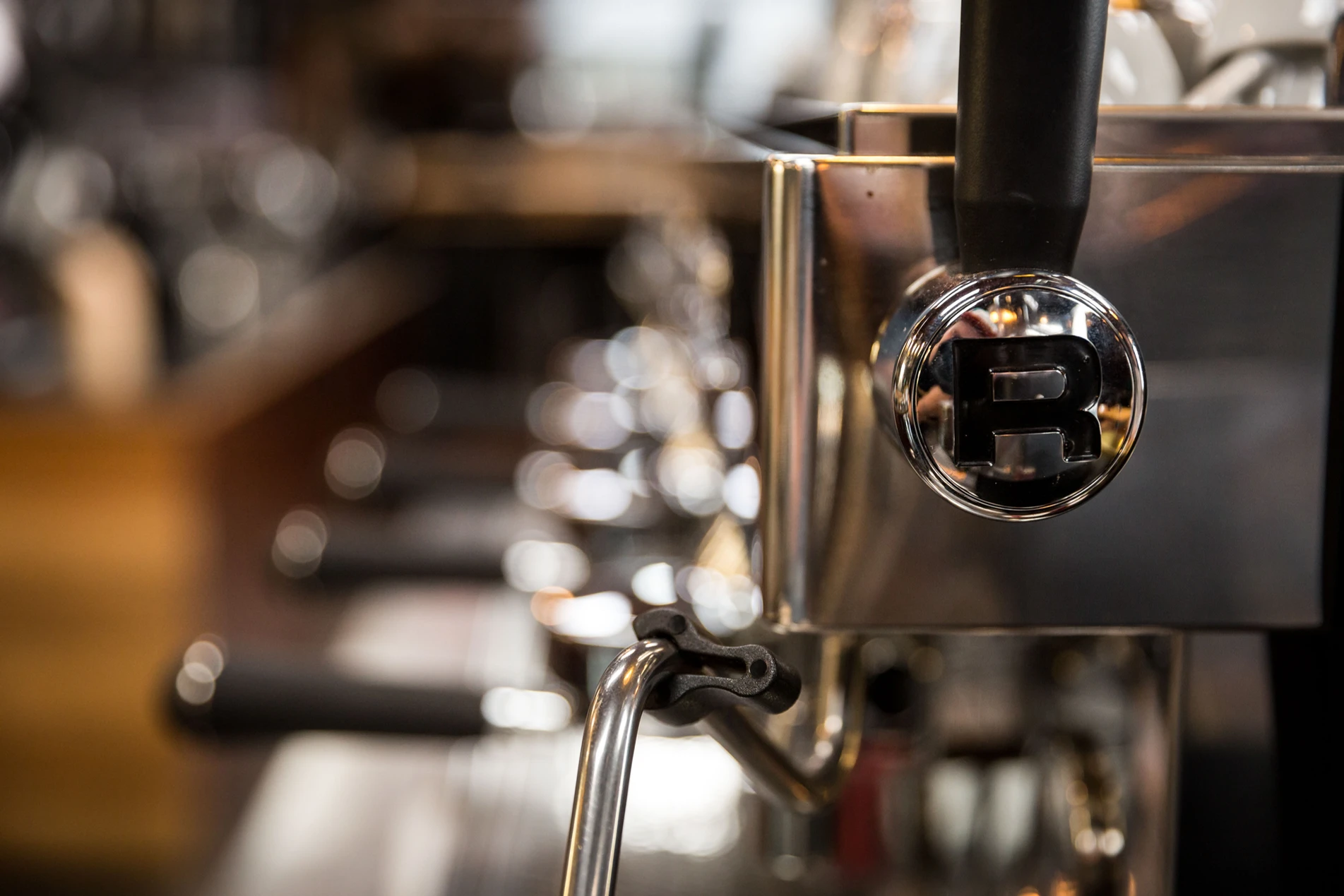
‘La Dolce Vita’
It was ten years ago when Andrew and Nicky, along with their son Felix, took the plunge for ‘the good life’ in Italy, deciding to invest themselves in the then struggling company. “I was involved with Café L’affare for a while,“ tells Andrew, “and they were the importer of these machines, so I probably first got introduced to them about 20 years ago. “Jeff Kennedy, the owner/founder of Café L’affare, said he thought that the company here was having financial problems, so Jeff and I made an approach to the owner. I came over and did a bit of due diligence, or whatever you’d call it, thought it looked good, so we bought the rights for the two domestic machines that they were producing at the time.” “It was really hard,” says Nicky, “people think it’s an idyllic dream to come to the other side of the world and do this but it’s actually really hard. Our language was pretty basic.” “Mine still is!” quips Andrew. “We also had a very young child,” continues Nicky, “who actually just jumped at it and was speaking Italian after about two months, full immersion.” They sell themselves short in a typical Kiwi manner, to be fair their background was perhaps leading to this: “Being a mechanic and looking after Italian cars for people, then having a restaurant and a coffee roasting business, then having an espresso machine manufacturing business, they are all actually linked,” Andrew reasons, “the car mechanics to the machine, the coffee to the machine and the restaurant and the making coffee for people, it’s all kind of a circle. “And I think that businesses are all fundamentally the same. You’ve got to have a good product for starters, you’ve got to have good customer service, and the other thing that I don’t think a lot of other people do is to take a problem on board. If we’ve done something wrong with a machine and it’s not good enough, well, we own the problem.”
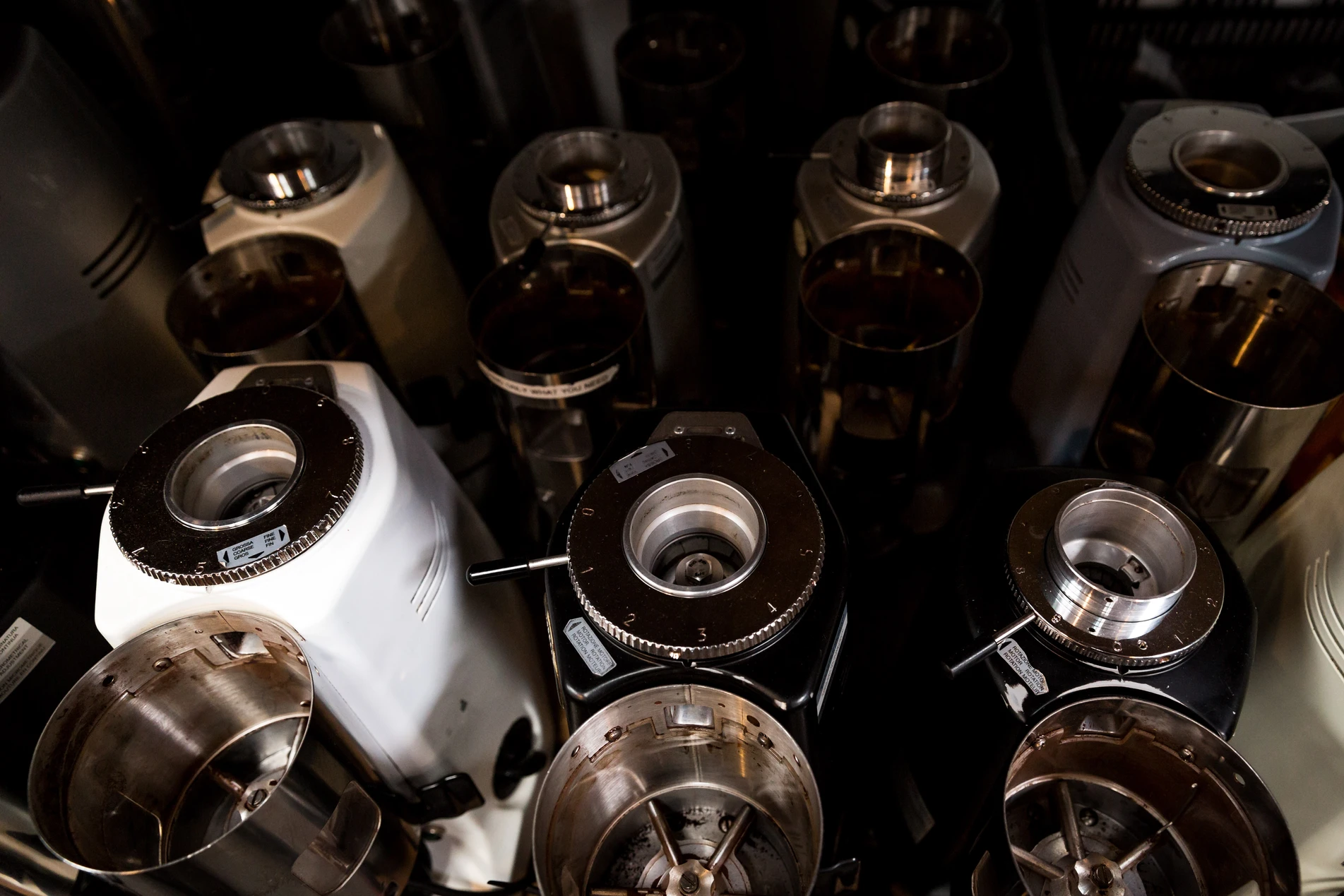
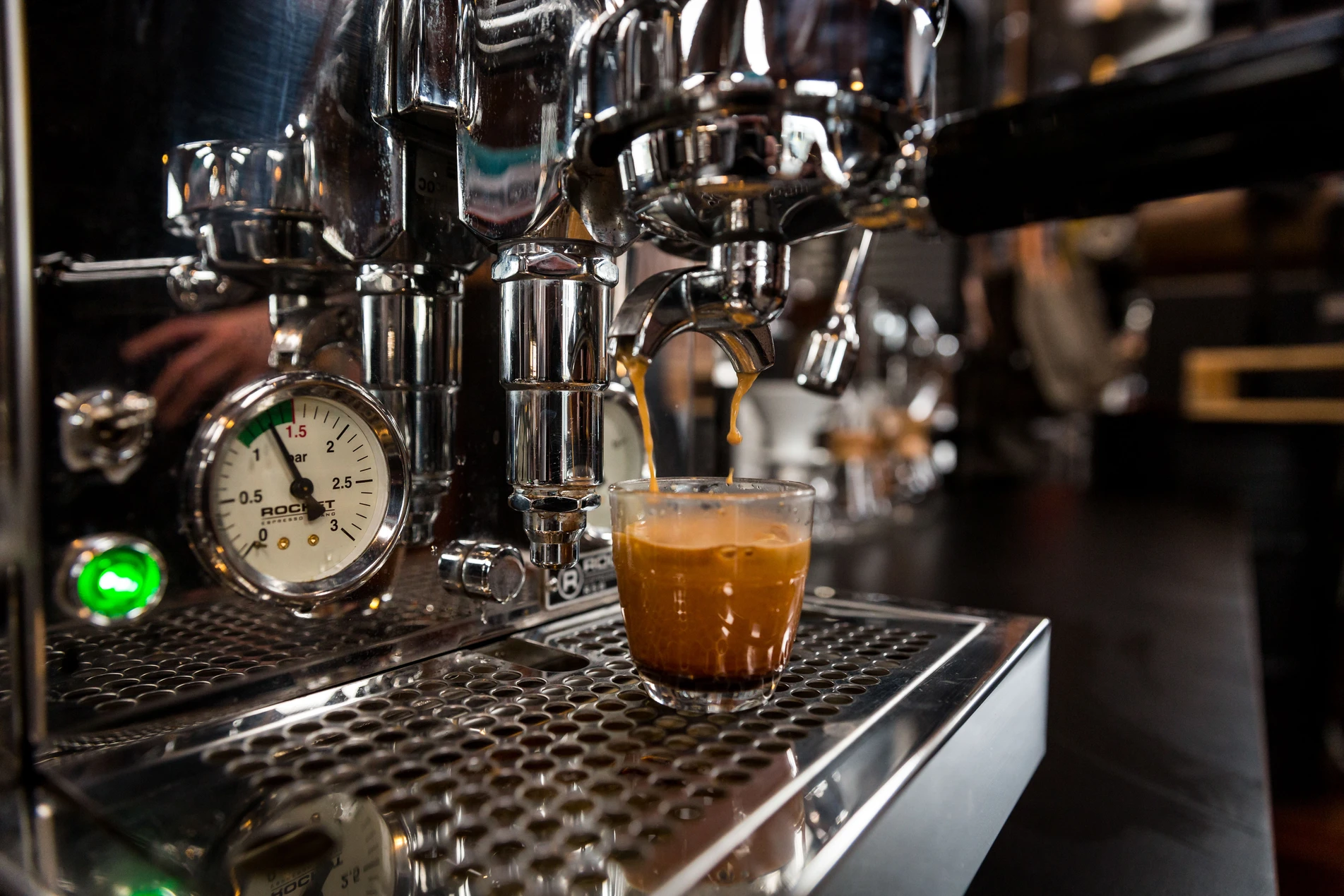
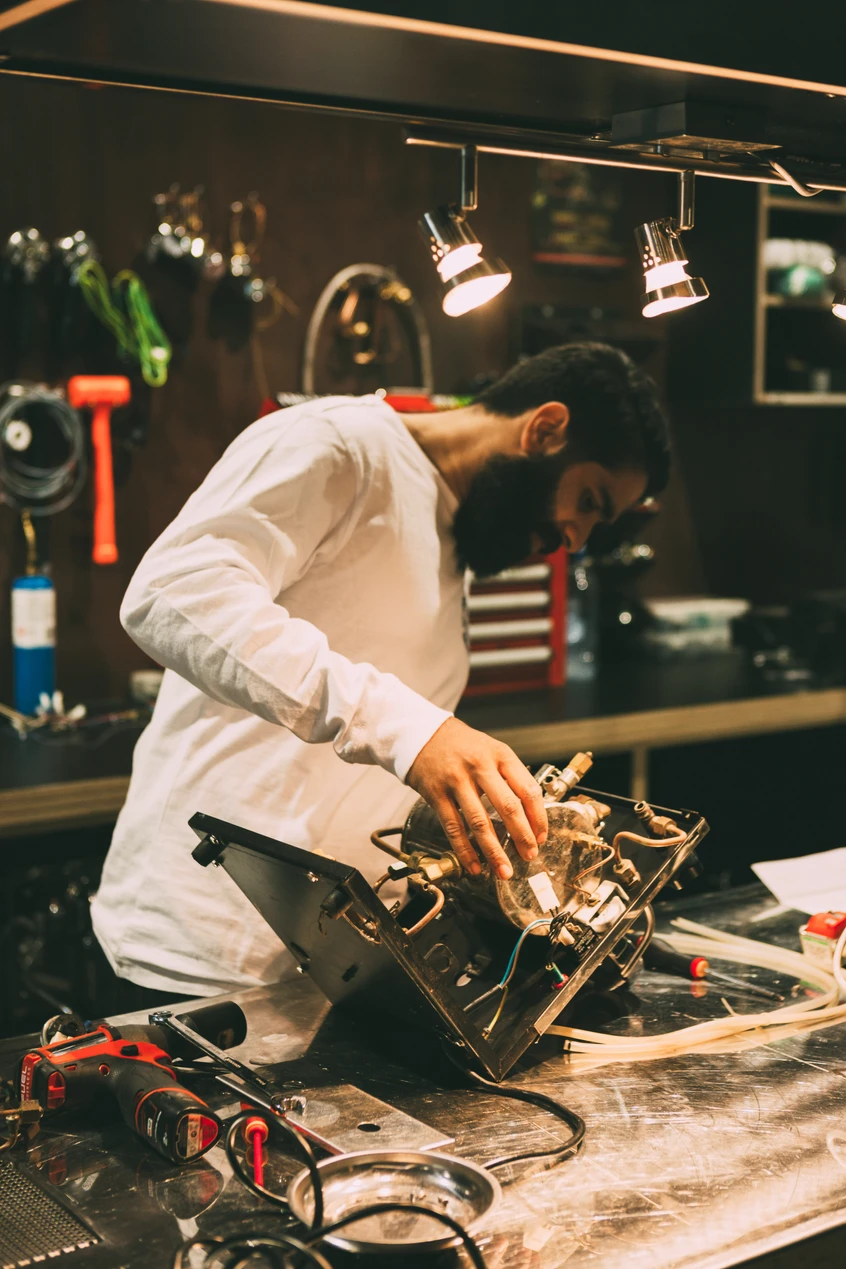
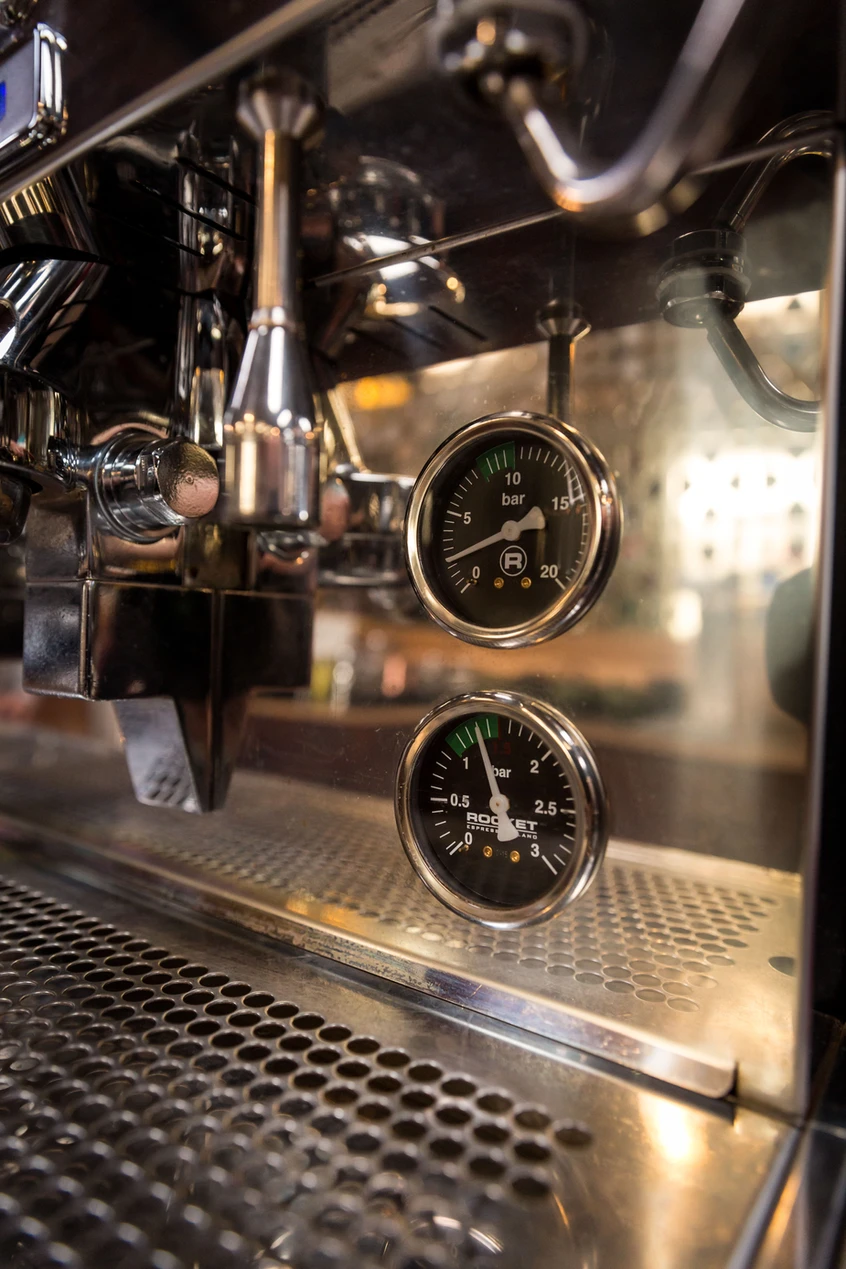
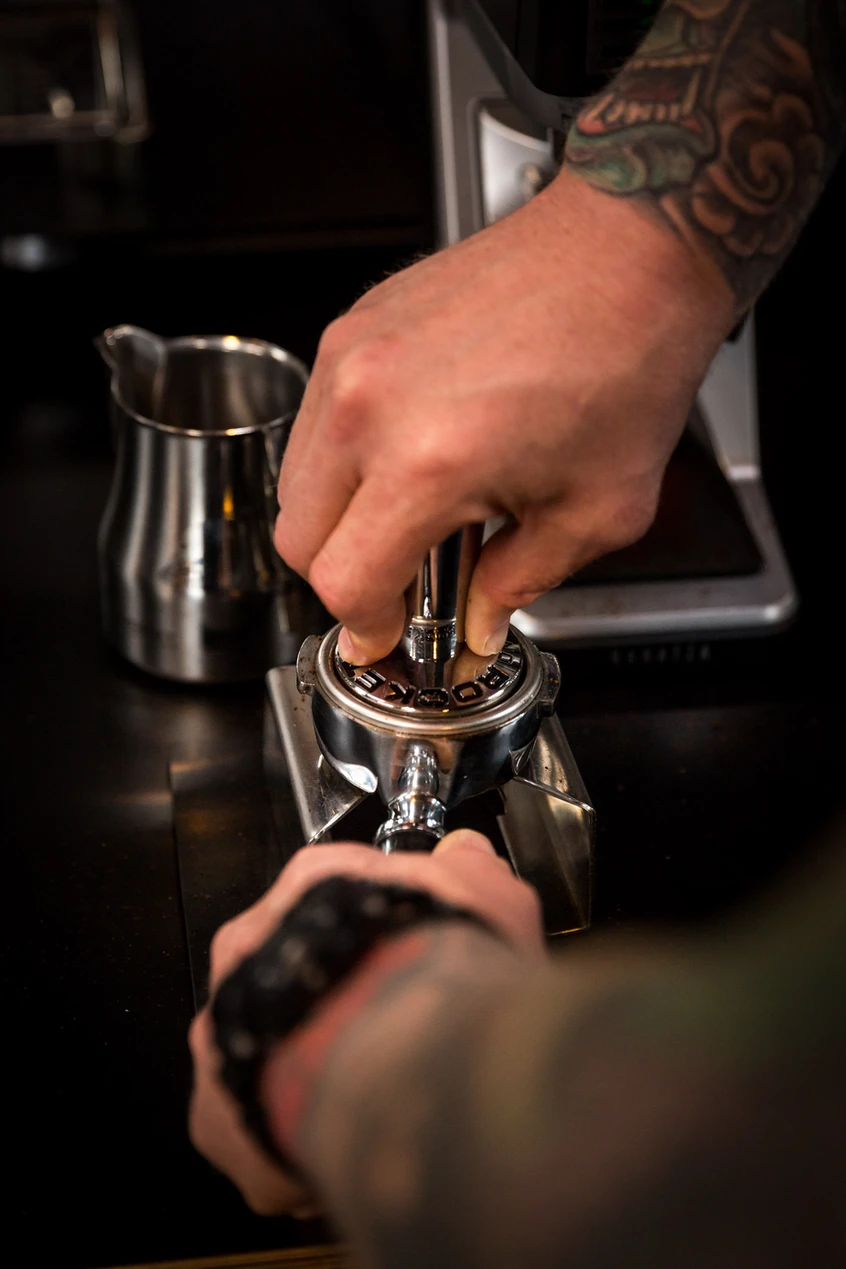
Fatto a Mano
Each machine is lined up dutifully next to each other, all part of the steadily moving production line, Andrew talking us through the process as we, and the machines, make our way through the facility. “The machines are incredibly labour intensive to build,” explains Andrew, ”but they are designed to last 25 to 30 years, longer if it’s well looked after. We have designed them so everything is replaceable. You could argue that we are assemblers and not manufacturers. But everything is our intellectual property, so the guy that makes our boilers can only make our boilers for us, every single copper pipe is our copper pipe and particular to our machine. What makes ours a better machine is basically the thermo siphon layout, what we call thermal architecture.” “I look after the marketing,” says Andrew of his day to day role here, “and more of the design of the machines, the feel of the machines. Daniele (Berenbruch, a shareholder from the original family, whose partnership continues today) does all the other stuff in terms of staff, money, supplies, stuff I’m no good at, so we work very well together.”
Andrew explains that despite only being in their current building for two years they’ve already outgrown it, planning to move the commercial machine line to another building just down the road in the next few weeks, while acknowledging the importance of keeping the ‘family’ – that’s the community that is their staff – close: “We’ll still have lunch together at a local restaurant on a Monday.” It’s not just the family atmosphere that screams Italian, each Rocket Espresso machine has a look that is desirably stylish; a distinctly Rocket special something. “We are unusual as most manufacturers will put on digital displays,” says Andrew, pointing to the face of one of the machines, “my personal preference is not that. We want our machines to be unashamedly Rocket machines, whether you like that or don’t like that. When people go into a store we want them to look down and see a Rocket machine as having its own identity, perhaps its own personality.” While world-wide sales are increasing and Andrew currently estimates nearly a three-month wait list for machines it is the consumers closer to home that lap them up the most. “Australia is a big market and they have a container going every month. The thing is that in Italy there’s a bar on every corner so why have an expensive espresso machine in your apartment? “It’s starting, just in the last year or so, but the picture is skewed by Australasia really. Speciality coffee is now almost mainstream there now. “And while speciality coffee is definitely growing worldwide the market for this kind of machine is still very, very small. We estimate there’s probably 35,000 machines from all manufacturers a year, so it’s not a big market.”
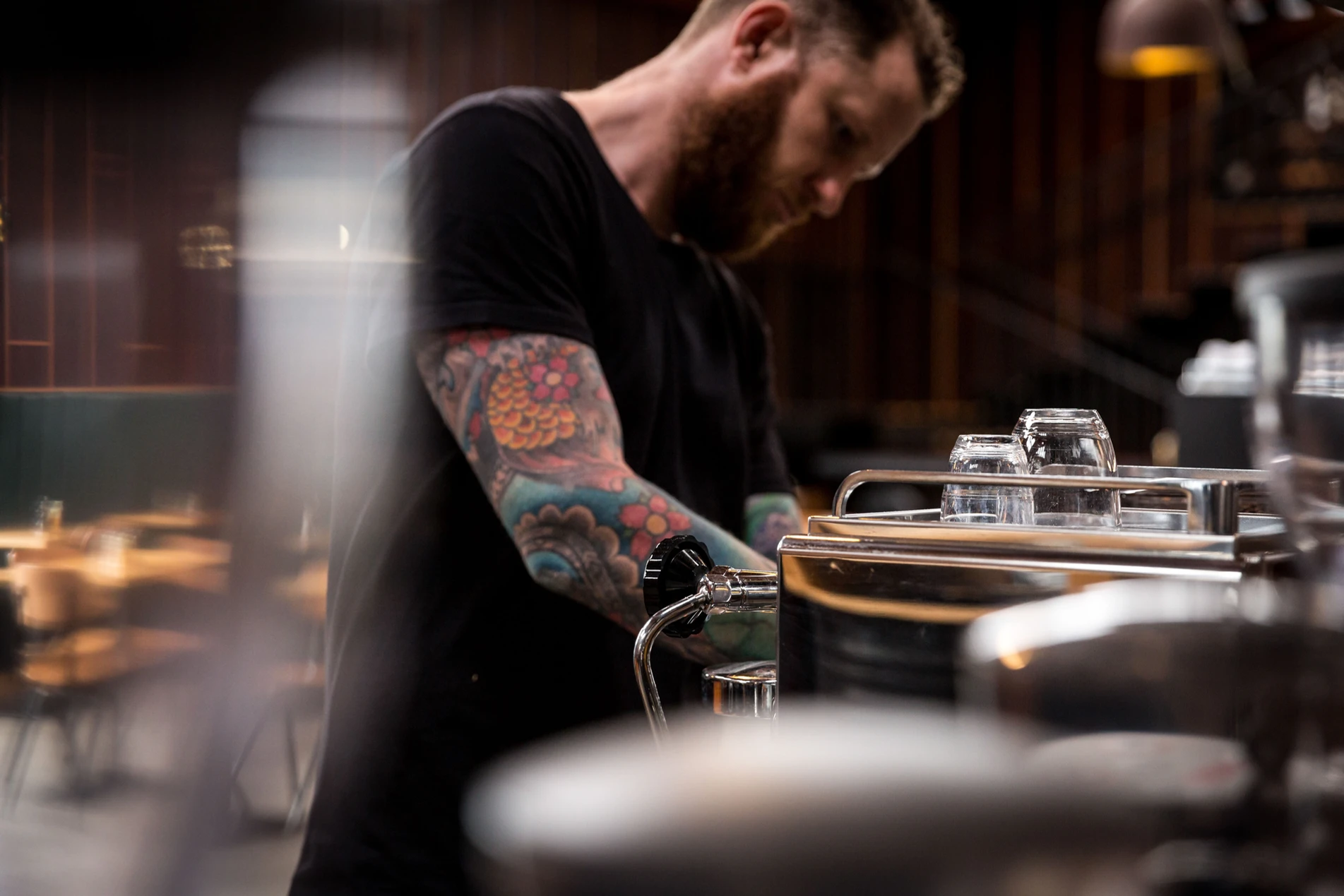
In Famiglia
With an inner peloton of Rocket owners within the pro ranks, the word has obviously spread and the Rocket ‘family’ continues to grow. “I’d like to think that some of them become ‘mates’, you know, some of them keep in touch, talk about the machines; kind of like a Rocket circle.” He tells about one of their recent machine recipients: “One night the phone rings and a voice says, ‘Hello Andrew, its Alberto here,’; ‘Alberto?’; ‘Alberto Contador, and I’d really like to get a machine’; ‘Well, that shouldn’t be a problem! “Since it was Alberto and he was living nearby in Lugano at the time I said we’d bring it over just after Christmas. So we put it in the car and drove over there and we were having lunch in the town beforehand and we ring him to say we were here and to ask for directions. “He says to us ‘OK, what colour car have you got?’ So we are driving down the road and there’s Alberto Contador standing on the side of the road jumping up and down waving at us! “I’m like, I should be the fan standing at the side of the road waving at him!”
“He’s such a lovely man,” continues Nicky, “and when we were packing up to drive back to Madrid the next day Andrew was giving him lessons on how to best use the machine and when Andrew said to him ‘OK Alberto, it’s your turn now’ he looked at Andrew and he was so worried, I was thinking’ oh my God you’ve won the Tour de France and you are worried about making us a coffee!’” The hints are everywhere, pictures of cycling jerseys, including Alberto’s, adorn the walls above the factory, Andrew’s office a mini-shrine of cycling and Rocket memorabilia. Although the connection with cycling and coffee goes back way beyond Cipo’s Saeco, Herrara’s Café de Colombia or even Gaul’s, Van Looy’s and Merckx’s Faema, it’s a tradition that Rocket Espresso are keen to continue: “We help an under-23 team here in Italy,” explains Andrew, “and the proceeds of the jerseys we sell through Prendas Ciclismo go towards the Dave Rayner fund. “Let’s face it, cycling worldwide is underfunded and even in Milan that is no different. The under-23 teams have no money so if we can help out it’s nice.”
This is something Andrew is all too aware of from his racing days here as a youngster, doing what he can to help out the next generation: “Bruce (Biddle) looked after a New Zealand team here in ’82 when I was 20. In those days we were kind of the ‘B’ team, Swart and Cox were the ‘A’ team, but we got to come here for a year. “We rode the amateur Giro and finished up with the Worlds at Goodwood. That was in the days when the Russians and the East Germans were still Russians and East Germans and being amateurs from New Zealand in those days we had it pretty hard. Bruce and I would really love to do something for New Zealand cycling, especially for juniors and under-23s.” A New Zealand U23 team with a Rocket Espresso machine in their kitchen? They will be faster.

